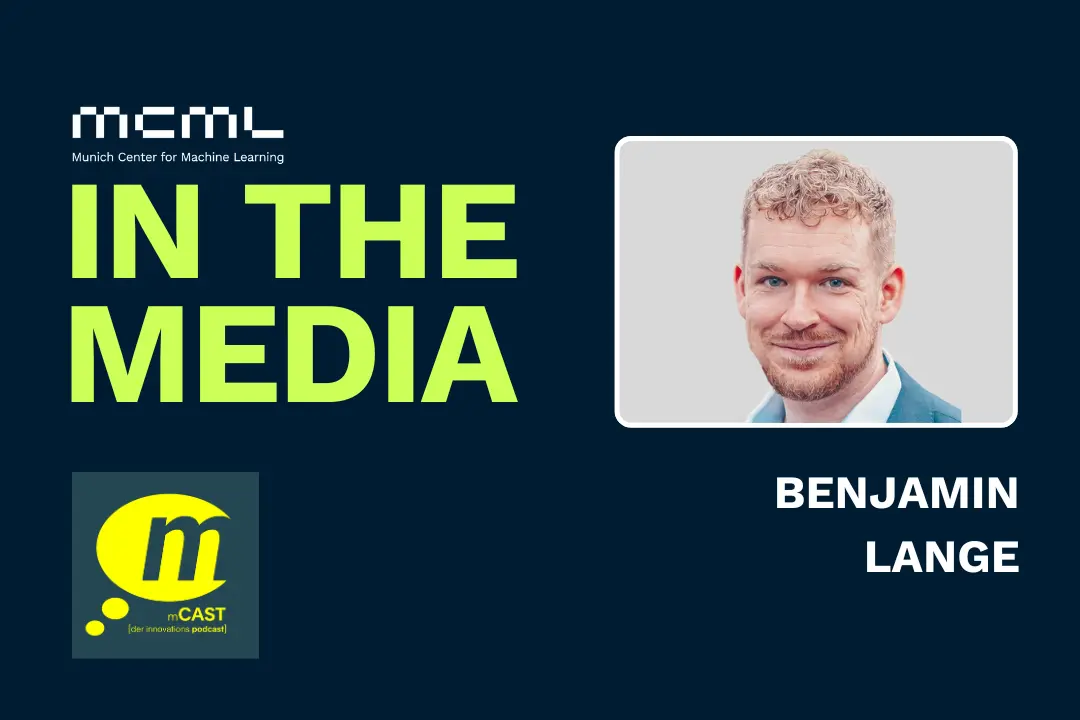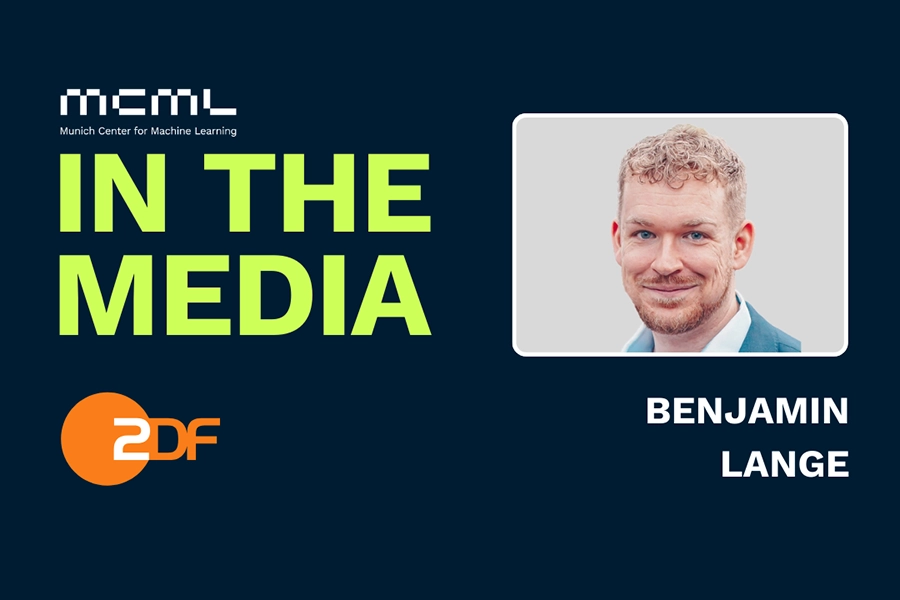Research Group Benjamin Lange
Benjamin Lange
leads the MCML Junior Research Group ‘Ethics of Artificial Intelligence’ at LMU Munich.
He and his team conduct research into fundamental and application-related ethical issues relating to AI and ML. They deal with fundamental and practical questions of AI ethics from a philosophical-analytical perspective. By organizing conferences, workshops and panel discussions, the group aims to enter into an interdisciplinary exchange with researchers from philosophy and other disciplines. An important focus here is also communication with the wider public about the moral and social aspects of AI. Another important task of the JRG is the transfer of philosophical-ethical findings and results into practice, for example through collaborations and dialogue with industry and society.
Recent News @MCML
Publications @MCML
2025
Evaluating Intra-firm LLM Alignment Strategies in Business Contexts.
Preprint (May. 2025). arXiv
Abstract
Instruction-tuned Large Language Models (LLMs) are increasingly deployed as AI Assistants in firms for support in cognitive tasks. These AI assistants carry embedded perspectives which influence factors across the firm including decision-making, collaboration, and organizational culture. This paper argues that firms must align the perspectives of these AI Assistants intentionally with their objectives and values, framing alignment as a strategic and ethical imperative crucial for maintaining control over firm culture and intra-firm moral norms. The paper highlights how AI perspectives arise from biases in training data and the fine-tuning objectives of developers, and discusses their impact and ethical significance, foregrounding ethical concerns like automation bias and reduced critical thinking. Drawing on normative business ethics, particularly non-reductionist views of professional relationships, three distinct alignment strategies are proposed: supportive (reinforcing the firm’s mission), adversarial (stress-testing ideas), and diverse (broadening moral horizons by incorporating multiple stakeholder views). The ethical trade-offs of each strategy and their implications for manager-employee and employee-employee relationships are analyzed, alongside the potential to shape the culture and moral fabric of the firm.
MCML Authors
Beyond the Ivory Tower? The Practical Role of Ethicists in Business.
Artificial Intelligence, Entrepreneurship and Risk. Technikzukünfte, Wissenschaft und Gesellschaft / Futures of Technology, Science and Society (Apr. 2025). DOI
Abstract
‘AI Ethics’, ‘Digital Ethics’ or ‘Corporate Digital Responsibility’—ethics in business, especially with the rise of Artificial Intelligence (AI), is now in vogue. But how, if at all, can ethicists meaningfully contribute to practical business challenges? I examine the value that resources from moral philosophy can bring to ethical issues in business, particularly the technology sector. I show that there is a specific need for sharpened ethical acumen in so-called ‘grey areas’, in which laws and regulation do not provide definite answers to the ethical challenges businesses face. I argue that ethicists can distinctively help businesses navigate grey areas by strengthening their ethical capabilities and functions, which concern an organization’s ethical awareness, deliberation, decision-making, and commitment. I conclude by discussing some practical examples of how ethicists can strengthen these capabilities.
MCML Authors
Relational Norms for Human-AI Cooperation.
Preprint (Feb. 2025). arXiv
Abstract
How we should design and interact with social artificial intelligence depends on the socio-relational role the AI is meant to emulate or occupy. In human society, relationships such as teacher-student, parent-child, neighbors, siblings, or employer-employee are governed by specific norms that prescribe or proscribe cooperative functions including hierarchy, care, transaction, and mating. These norms shape our judgments of what is appropriate for each partner. For example, workplace norms may allow a boss to give orders to an employee, but not vice versa, reflecting hierarchical and transactional expectations. As AI agents and chatbots powered by large language models are increasingly designed to serve roles analogous to human positions - such as assistant, mental health provider, tutor, or romantic partner - it is imperative to examine whether and how human relational norms should extend to human-AI interactions. Our analysis explores how differences between AI systems and humans, such as the absence of conscious experience and immunity to fatigue, may affect an AI’s capacity to fulfill relationship-specific functions and adhere to corresponding norms. This analysis, which is a collaborative effort by philosophers, psychologists, relationship scientists, ethicists, legal experts, and AI researchers, carries important implications for AI systems design, user behavior, and regulation. While we accept that AI systems can offer significant benefits such as increased availability and consistency in certain socio-relational roles, they also risk fostering unhealthy dependencies or unrealistic expectations that could spill over into human-human relationships. We propose that understanding and thoughtfully shaping (or implementing) suitable human-AI relational norms will be crucial for ensuring that human-AI interactions are ethical, trustworthy, and favorable to human well-being.
MCML Authors
Moral parenthood and gestation: replies to Cordeiro, Murphy, Robinson and Baron.
Journal of Medical Ethics 51.2 (Jan. 2025). DOI
Abstract
I am grateful to James Cordeiro, Timothy Murphy, Heloise Robinson and Teresa Baron for their perceptive and stimulating comments on my article in this journal. In what follows, I seek to respond to some of the main points raised in each commentary.
MCML Authors
Moral parenthood: not gestational.
Journal of Medical Ethics 51.2 (Jan. 2025). DOI
Abstract
Parenting our biological children is a centrally important matter, but how, if it all, can it be justified? According to a contemporary influential line of thinking, the acquisition by parents of a moral right to parent their biological children should be grounded by appeal to the value of the intimate emotional relationship that gestation facilitates between a newborn and a gestational procreator. I evaluate two arguments in defence of this proposal and argue that both are unconvincing.Data are available in a public, open access repository.
MCML Authors
Digital Duplicates and Collective Scarcity.
Philosophy and Technology 38.7 (Jan. 2025). DOI
Abstract
Digital duplicates reduce the scarcity of individuals and thus may impact their instrumental and intrinsic value. I here expand upon this idea by introducing the notion of collective scarcity, which pertains to the limitations faced by social groups in maintaining their size, cohesion and function.
MCML Authors
2024
The Future Audit Society? Automated Assurance and Auditing.
AISoLA 2024 - 2nd International Conference on Bridging the Gap Between AI and Reality. Crete, Greece, Oct 30-Nov 03, 2024. To be published.
Abstract
AI audits are a key mechanism for responsible AI governance. AI audits have been proposed in a variety of laws and regulations standardized frameworks and guidelines for industry best practices as a mechanism to facilitate public trust and accountability for AI system developers and deployers. Though AI auditing for the purpose of compliance and assurance with normative requirements currently lacks defined norms and standardized practices, some systematic assurance AI audit methodologies are emerging that are modelled on financial auditing practices. In the spirit of financial audits which aim to uphold trust in the integrity of the proper function of the financial markets for stakeholders, AI audits, on this line of reasoning, aim to provide assurance to their stakeholders about AI organizations’ ability to govern their algorithms in ways that mitigate harms and uphold human values. Against this backdrop, the nature of the auditing industry is currently evolving. Traditional financial auditing practices are becoming increasingly automated by AI and, given the complexity of some AI-systems themselves and the high degree of assurance that they will require, the future of AI auditing itself will foreseeably be automated. This paper makes a first step toward exploring this picture. I argue that current automated auditing trends run the risk of undermining the justificatory plausibility of auditing as an accountability and trust-facilitating mechanism itself. In particular, I suggest that this leads to a continuous desire for verification, in which the epistemic obscurity of auditing assurance – the nature of the judgment provided auditors – increases and the operational capability of audits to achieve their aims decreases.
MCML Authors
Moral Imagination for Engineering Teams: The Technomoral Scenario.
The International Review of Information Ethics 34.1 (Oct. 2024). DOI
Abstract
‘Moral imagination’ is the capacity to register that one’s perspective on a decision-making situation is limited, and to imagine alternative perspectives that reveal new considerations or approaches. We have developed a Moral Imagination approach that aims to drive a culture of responsible innovation, ethical awareness, deliberation, decision-making, and commitment in organizations developing new technologies. We here present a case study that illustrates one key aspect of our approach – the technomoral scenario – as we have applied it in our work with product and engineering teams. Technomoral scenarios are fictional narratives that raise ethical issues surrounding the interaction between emerging technologies and society. Through facilitated roleplaying and discussion, participants are prompted to examine their own intentions, articulate justifications for actions, and consider the impact of decisions on various stakeholders. This process helps developers to reenvision their choices and responsibilities, ultimately contributing to a culture of responsible innovation.
MCML Authors
The impact of intelligent decision-support systems on humans' ethical decision-making: A systematic literature review and an integrated framework.
Technological Forecasting and Social Change 204.123403 (Jul. 2024). DOI
Abstract
With the rise and public accessibility of AI-enabled decision-support systems, individuals outsource increasingly more of their decisions, even those that carry ethical dimensions. Considering this trend, scholars have highlighted that uncritical deference to these systems would be problematic and consequently called for investigations of the impact of pertinent technology on humans’ ethical decision-making. To this end, this article conducts a systematic review of existing scholarship and derives an integrated framework that demonstrates how intelligent decision-support systems (IDSSs) shape humans’ ethical decision-making. In particular, we identify resulting consequences on an individual level (i.e., deliberation enhancement, motivation enhancement, autonomy enhancement and action enhancement) and on a societal level (i.e., moral deskilling, restricted moral progress and moral responsibility gaps). We carve out two distinct methods/operation types (i.e., process-oriented and outcome-oriented navigation) that decision-support systems can deploy and postulate that these determine to what extent the previously stated consequences materialize. Overall, this study holds important theoretical and practical implications by establishing clarity in the conceptions, underlying mechanisms and (directions of) influences that can be expected when using particular IDSSs for ethical decisions.
MCML Authors
©all images: LMU | TUM







